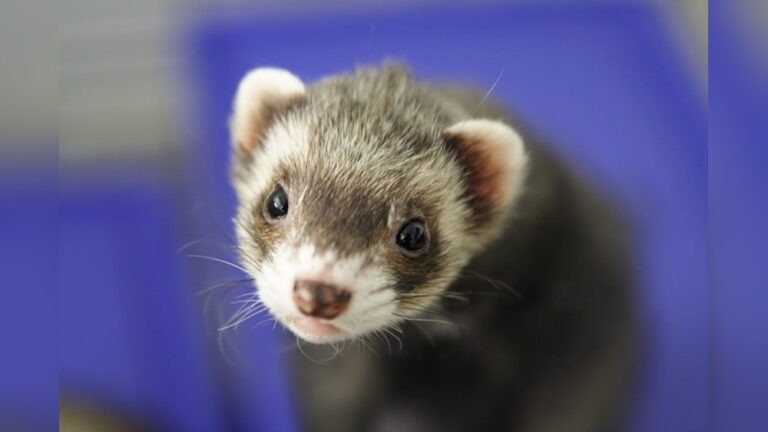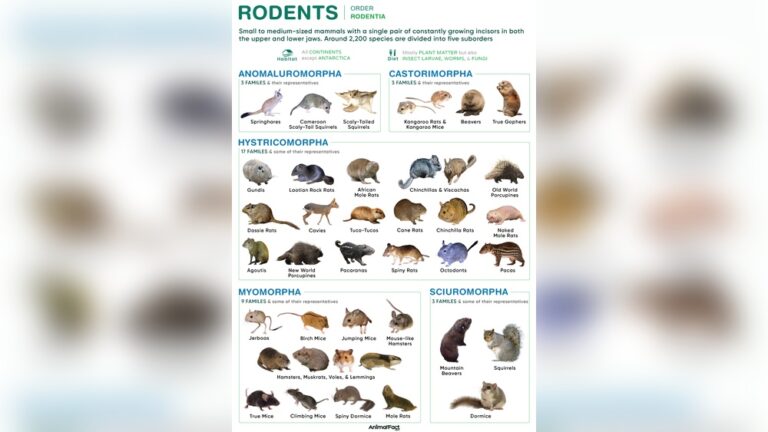How To Care For A Pregnant Guinea Pig: Essential Expert Tips
Caring for a pregnant guinea pig can feel overwhelming, but you’re not alone. Your little pet needs special attention now more than ever, and the right care can make all the difference.
Imagine giving your guinea pig the comfort and support she needs to bring healthy babies into the world. In this guide, you’ll discover simple, practical tips that anyone can follow to ensure your pregnant guinea pig stays happy and healthy.
Keep reading—your furry friend’s well-being depends on what you do next.

Credit: guineadad.com
Signs Of Pregnancy
Recognizing the signs of pregnancy in your guinea pig is important for proper care. Pregnancy usually lasts about 59 to 72 days. During this time, your pet’s body and behavior will change. Observing these signs helps you prepare for the new babies and keep your guinea pig healthy.
Physical Changes
Your guinea pig’s belly will grow bigger as the babies develop. You may notice her sides becoming round and firm. Her nipples will also become pinker and more visible. Weight gain is common and steady. Sometimes, she may have a slight waddle while walking. These changes usually start to appear around the third week of pregnancy.
Behavioral Shifts
Pregnant guinea pigs often become more tired than usual. She might rest more and move less. Some guinea pigs become more affectionate, seeking extra attention. Others may act nervous or hide more than before. Appetite can increase, so she may eat more hay and vegetables. Watch for changes in activity and mood to understand her needs better.
Optimal Diet
Feeding a pregnant guinea pig the right diet is very important. Proper nutrition helps the mother stay healthy and supports the growth of her babies. A balanced diet provides all the vitamins and minerals she needs. It also keeps her energy up during pregnancy. Understanding what to feed and what to avoid ensures a smooth pregnancy.
Nutrient Needs
Pregnant guinea pigs need more vitamin C. They cannot make it on their own. Fresh vegetables like bell peppers and kale provide this vitamin. Calcium is important too, for strong bones and teeth. Protein helps build muscles and tissues. Offer high-quality pellets with extra nutrients made for pregnant guinea pigs. Fresh hay should be available all day for fiber.
Safe Foods
Safe foods include leafy greens such as romaine lettuce and spinach. Carrots and cucumbers are good treats. Fruits like apples and strawberries are fine but give small amounts. Always wash fruits and vegetables before feeding. Clean water must be fresh and available at all times. Avoid sudden changes in diet to prevent stomach upset.
Foods To Avoid
Never feed chocolate, caffeine, or sugary snacks. These are toxic to guinea pigs. Avoid iceberg lettuce because it has little nutrition. Do not give onions, garlic, or potatoes as they can harm your pet. Seeds and nuts can cause choking or digestive problems. Avoid salty or processed human foods completely.
Housing Setup
Setting up the right housing for a pregnant guinea pig is very important. It keeps her safe and comfortable during pregnancy. A proper home helps reduce stress and supports healthy babies.
Cage Requirements
Choose a cage with enough space for movement. At least 7.5 square feet is good for one guinea pig. Good ventilation is a must to keep fresh air flowing. Avoid cages with wire floors to protect her feet. Solid, easy-to-clean surfaces work best.
Bedding Choices
Select soft, absorbent bedding that keeps the cage dry. Paper-based or fleece bedding is gentle and safe. Avoid cedar or pine shavings, which can harm her breathing. Change bedding regularly to maintain cleanliness. A clean cage helps prevent infections.
Safe Nesting Area
Provide a quiet, cozy nest for her to rest and give birth. Use soft materials like shredded paper or fleece cloth. Place the nest in a low-traffic area to avoid stress. Check the nest daily and keep it tidy.

Credit: www.wikihow.com
Health Monitoring
Monitoring your pregnant guinea pig’s health is very important. It helps catch problems early. Careful observation ensures the mother and babies stay safe. Regular checks allow quick action if something goes wrong.
Watch her eating habits and energy levels closely. Healthy guinea pigs eat well and move around. Any change can signal illness or stress. Keep track of her weight to spot any sudden loss or gain.
Common Pregnancy Issues
Pregnant guinea pigs may face some health problems. One common issue is pregnancy toxemia, a serious condition caused by poor diet or stress. Signs include weakness, loss of appetite, and trouble breathing.
Another problem is urinary tract infections. Symptoms are frequent urination and discomfort. Sometimes, a guinea pig may suffer from difficult births. This can happen if she is too young or overweight.
When To Contact A Vet
Contact a vet immediately if your guinea pig stops eating for more than 24 hours. Seek help if she shows signs of pain or distress. Sudden weight loss or swelling needs urgent care.
If she has trouble giving birth or if babies are stuck, call a vet. Any unusual discharge or bleeding is also a warning sign. Quick veterinary care can save lives in emergencies.
Exercise And Enrichment
Exercise and enrichment are very important for a pregnant guinea pig’s health. They help keep her body strong and her mind active. Gentle activity supports healthy muscles and can improve her mood. Enrichment prevents boredom and stress during pregnancy.
Safe Activity Options
Choose soft, flat areas for exercise. Avoid high jumps or rough surfaces. Short play sessions outside the cage work well. Provide tunnels or small ramps for gentle climbing. Let her explore new toys slowly. Always watch her for signs of tiredness or discomfort.
Mental Stimulation
Offer chew toys to keep her teeth healthy. Hide small treats in hay for a fun search. Change toys regularly to keep interest high. Use simple puzzles made for guinea pigs. Talk softly to her during play. These activities keep her mind sharp and happy.
Preparing For Birth
Preparing for the birth of a guinea pig is very important for her health and the babies’. This time needs calm and gentle care. Make a quiet and safe space for her to feel secure. Watch her closely for any changes in behavior or signs of labor. Being ready helps you support her during this special time.
Signs Of Labor
Labor signs in guinea pigs are subtle but clear. She may become restless and pace a lot. You might notice her nesting or pulling at bedding. Her belly could look lower as the babies move down. Watch for heavy breathing or small noises. These signs show birth is near.
Birthing Process
The birthing process usually lasts from 20 minutes to an hour. Guinea pigs often give birth to multiple babies. Each pup is born fully furred and with eyes open. The mother cleans each baby after birth. Stay calm and keep the area quiet. Avoid touching the babies unless necessary.
Post-birth Care
After birth, keep the mother and babies warm. Change bedding gently and keep the cage clean. Offer fresh hay, vegetables, and water to the mother. Watch the babies to ensure they feed well. Avoid loud noises and stress around the new family. Check the mother for any health issues.

Credit: www.shropshireguineapiggery.co.uk
How Smart Pets Lover Can Help You with How To Care For A Pregnant Guinea Pig
Turning Care Into Learning: Embracing the Journey with Your Pregnant Guinea Pig
Taking care of a pregnant guinea pig is more than a set of tasks — it’s an opportunity to deepen your bond and learn about these gentle creatures’ unique needs. Observing the signs of pregnancy helps you understand her changing behavior, while adjusting the optimal diet ensures she gets the right nutrients at every stage. Setting up a comfortable, safe space for her not only prepares for birth but also teaches you about the importance of environment in pet health.
At Smart Pets Lover, we believe every moment with your pet is a chance to grow as a responsible pet parent. Keeping a close eye on her health and providing gentle exercise enriches her experience and yours. If questions arise, reaching out to experienced vets or local pet communities can offer reassurance and practical tips — because being informed makes the journey smoother for both of you.
Remember, nurturing her now sets the foundation for a happy, healthy family — and every wag, purr, or chirp truly tells a story worth cherishing.
Frequently Asked Questions
How Do I Prepare A Cage For A Pregnant Guinea Pig?
Provide a clean, spacious cage with soft bedding. Avoid wire floors to protect her feet. Add hiding spots for comfort. Ensure good ventilation and easy access to food and water. Keep the cage in a quiet, stress-free area away from loud noises.
What Should I Feed A Pregnant Guinea Pig?
Feed high-quality hay, fresh vegetables, and vitamin C-rich pellets. Increase calcium and protein intake slightly to support pregnancy. Always provide fresh water. Avoid sugary or fatty treats. A balanced diet ensures healthy growth of both mother and babies.
How Often Should I Check On A Pregnant Guinea Pig?
Check her daily to monitor health and behavior. Watch for signs of distress or illness. Ensure she is eating and drinking well. Frequent gentle handling helps reduce stress. Contact a vet if you notice unusual symptoms or decreased activity.
When Should I Separate The Pregnant Guinea Pig From Others?
Separate her as soon as pregnancy is confirmed. This prevents stress and aggression from cage mates. A quiet, private space helps her feel secure. Reintroduce others only after the babies are weaned and the mother feels comfortable.
Conclusion
Caring for a pregnant guinea pig takes patience and gentle care. Keep her environment clean and quiet. Provide fresh food and water every day. Watch her health and behavior closely. Small changes can make a big difference. Your care helps her and her babies stay safe.
Enjoy this special time with your pet. Simple steps lead to healthy guinea pigs. Stay calm and attentive throughout the pregnancy. Your love and care matter most.







